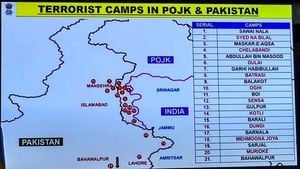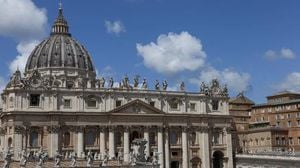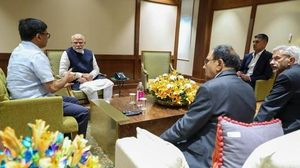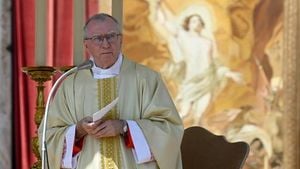Rafał Trzaskowski, a prominent candidate for the presidency from the Civic Coalition, has openly criticized President Andrzej Duda's recent decision to veto a bill aimed at reducing health insurance contributions for entrepreneurs. Speaking on Radio Zet, Trzaskowski expressed his disapproval of Duda's actions, asserting that he would have signed the bill himself if given the opportunity.
Trzaskowski's comments come in the wake of Duda's veto, which his office claimed was due to serious concerns regarding social justice and constitutional principles. The proposed legislation sought to lower health insurance contributions starting in 2026, a change that would have impacted approximately 2.5 million business owners and was expected to cost the state budget around 4.6 billion zł in reduced health insurance revenue.
During his interview, Trzaskowski emphasized the chaos introduced by the ruling Law and Justice party (PiS) through their Polish Deal, which he claims has led to nearly 600,000 firms suspending their operations. "PiS has created unbelievable chaos with their Polish Deal," he stated, highlighting the burdens placed on entrepreneurs. He argued that it is essential to gradually eliminate such unfair burdens, especially when the finance minister has assured that the proposed changes would not adversely affect the National Health Fund (NFZ).
Trzaskowski, who manages ten hospitals in Warsaw, pointed out that he has successfully secured 200 million zł from the European Union for cancer treatment, and that a total of 800 million zł has been invested in Warsaw's healthcare facilities. He believes that proper management of hospitals, alongside effective utilization of EU funds, can lead to significant improvements in the healthcare system.
In addition to criticizing Duda's veto, Trzaskowski responded to comments made by Adrian Zandberg, the leader of the Razem party. Zandberg had previously thanked Duda for the veto, claiming that without it, the current government would have led to the privatization of hospitals. Trzaskowski dismissed this assertion as "absolute nonsense," insisting that the focus should be on better management of hospitals and the effective use of EU funding.
He reiterated his commitment to healthcare reform, stating, "We can implement a reform that will ensure the system is sustainable, especially by leveraging significant funds from the EU. This government has access to over a billion from the National Recovery Plan, and it is crucial to alleviate the burdens on entrepreneurs while simultaneously reforming healthcare."
Trzaskowski's remarks come at a time when the political landscape in Poland is increasingly polarized, particularly as the country approaches the upcoming presidential elections. His criticisms of Duda's presidency are not new; he had previously stated in 2020 that having the same government and president from one party was the worst possible scenario. This statement has resurfaced in light of his current candidacy, prompting discussions about the implications of party alignment in governance.
Demagog, a fact-checking organization, has scrutinized Trzaskowski's previous claims regarding Duda's veto record. While Trzaskowski asserted that Duda had only vetoed two laws from his own camp by June 29, 2020, Demagog found that Duda had actually vetoed five laws during that period, indicating a more complex relationship between the president and his party.
Among the laws vetoed by Duda were significant pieces of legislation, including amendments related to the National Council of the Judiciary and the Supreme Court. These vetoes have sparked debates about Duda's independence and the extent of his alignment with PiS, particularly given that he has vetoed more laws from his party than any other president since 1989.
As the election draws nearer, Trzaskowski's stance on healthcare and his criticisms of Duda's governance could play a pivotal role in shaping public opinion. His emphasis on reforming the NFZ and ensuring better management of healthcare resources resonates with many voters concerned about the state of Poland's healthcare system.
With the political climate in Poland becoming increasingly contentious, Trzaskowski's proposals and critiques will likely continue to garner attention. His ability to connect with voters on issues that matter to them, such as healthcare, could be crucial in determining the outcome of the presidential race.
Ultimately, the debate surrounding the vetoed health insurance bill and broader healthcare reforms highlights the ongoing challenges facing Poland's political landscape. As candidates like Trzaskowski push for change, the electorate remains attentive to how these issues will unfold in the lead-up to the elections.




